As you probably have noticed, we like going back in time and looking at how the famous flagships of today started out in the past. We gave you the evolution of the Galaxy Note and recently showed you what has changed through the years for the Nexus phones. Today, we take a look at how Apple‘s iPhones have changed in a span of eight years.

The very first iPhone was announced back in January of 2007 and was later on released in June of the same year. Steve Jobs said that it would “reinvent the phone” by offering three revolutionary products in one device — a widescreen iPod with touch controls, a mobile phone, and a breakthrough Internet communications device.
It boasted a 3.5-inch display with 480 x 320 resolution at around 165ppi. Internally, the first iPhone rocked an ARM 11 CPU partnered with either a 4GB, 8GB, and 16GB storage variants. As for its camera, it was equipped with a 2-megapixel shooter with no secondary cam (as selfies still weren’t big back then).
It’s worth noting that Jobs himself claimed that it was “literally five years ahead of any other mobile phone” when it first came out.

A year after the first iPhone came out, the company quickly released a follow-up device due to the success of its first model. The iPhone 3G, back then, still maintained the 3.5-inch screen size reinforced with Gorilla Glass display but could already connect to faster 3G speeds and had a built-in GPS for the first time.
Because of this, the company also introduced new location services which the late Steve Jobs said was “going to be a really big deal on the iPhone.” Other than a faster processor, the iPhone 3G had better battery performance and offered 10 hours of talk time which was double than what its predecessor could provide.
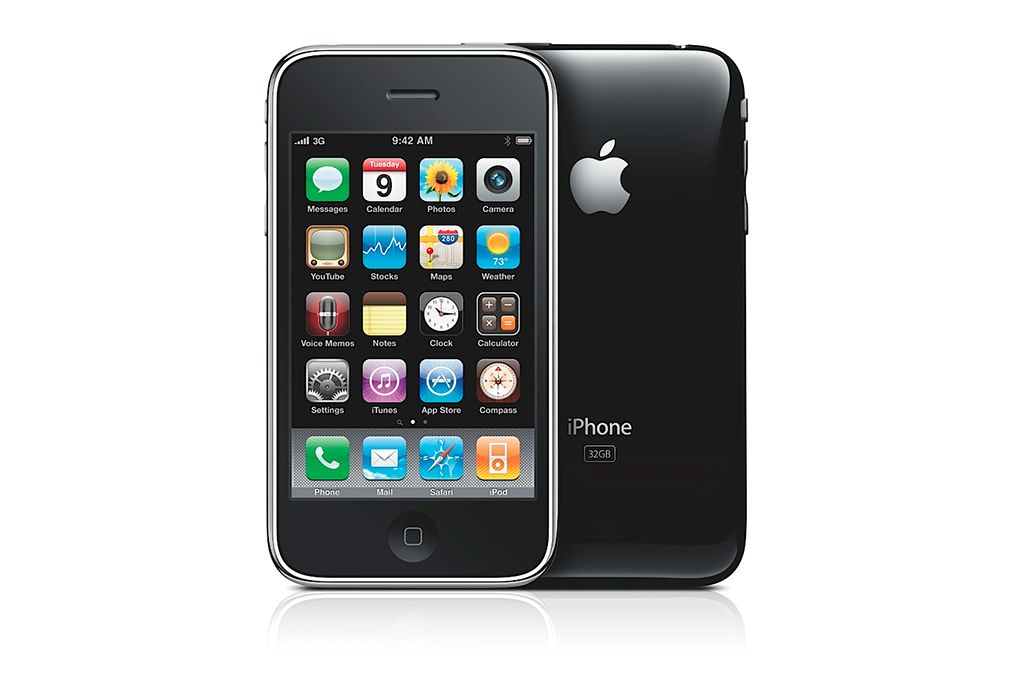
In June of 2009, the iPhone 3GS was announced and with it came a processor that’s “twice as fast” than the previous model and performed on the then-new iPhone 3.0 OS. In addition, this model also sported a new auto-focusing camera that not only shoots stills, but also video. The tap-to-focus feature also made its debut here using the camera’s 3-megapixel sensor.
Voice control was also new during this time — allowing users to make calls by saying “Dial” followed by the contact’s name in the address book. Digital compass and data encryption were also thrown into the device along with the first appearance of the Find My iPhone feature for remote data-wiping.
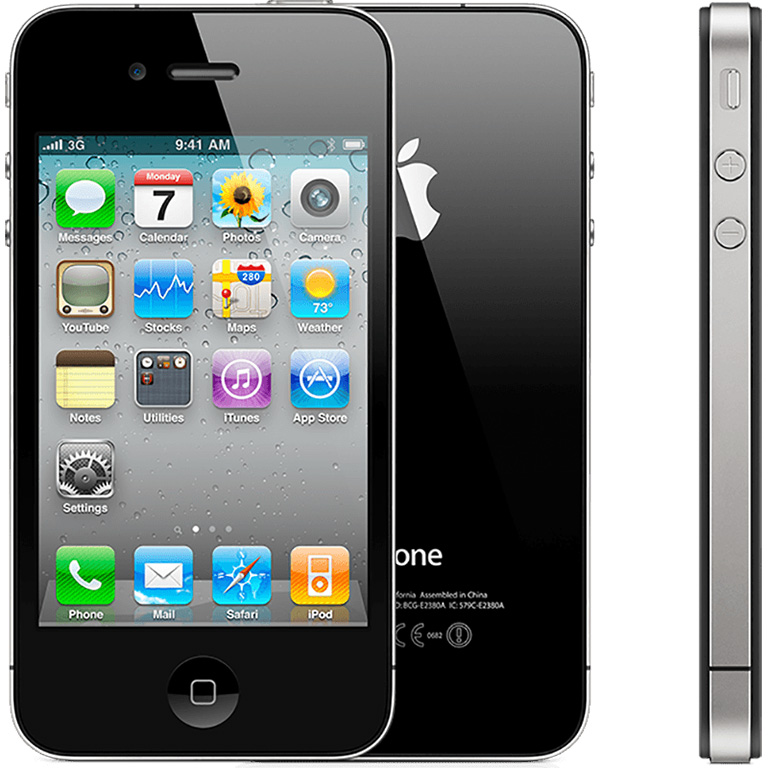
The iPhone 4 went through an overhaul for its design and no longer carried the curved edges of its previous siblings. Instead, it flaunted corners with a metal strip running around the device, acting like a frame. It ran on iOS 4 and featured (for the first time) the FaceTime video chat. Processing power also got its fair share of upgrade. With Apple’s A4 CPU (which was also used for the company’s iPad) partnered with a bigger 512MB RAM, the device managed to perform better.
Moreover, its screen also received a huge update since the new Retina display made its way to the iPhone 4 first. This bumped up the screen resolution to 960 x 640 with a density of 326ppi but was squeezed into the same 3.5-inch screen so it gave off packed and clearer images. Back then, it had one of the best displays of its time.
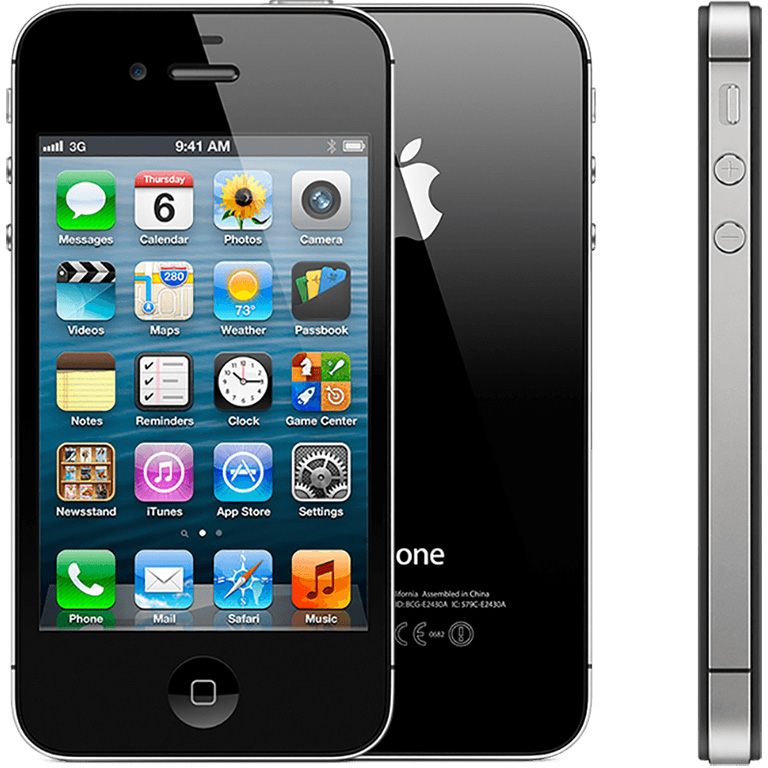
This was where Tim Cook stepped in to fill Steve Jobs’ position as CEO after ending his term. It was Cook who introduced the iPhone 4S back in October of 2011 that basically looked almost the same as the iPhone 4. What’s improved, rather significantly, was that the handset had seven times faster graphics-rendering capabilities because of its new A5 SoC. For comparison, this was also what powered the iPad 2 during the time.
It was called the first “world phone” since it catered to a larger audience by having support for CDMA and GSM networks. The camera got its sensor upgraded to 8 megapixels. Stabilization for smoother videos was also implemented here, in addition to shooting in Full HD resolution. Users of this handset were also the first to utilize iCloud for synchronization and backing up of files.
Finally, the now-popular Siri first came out the same time as the 4S.
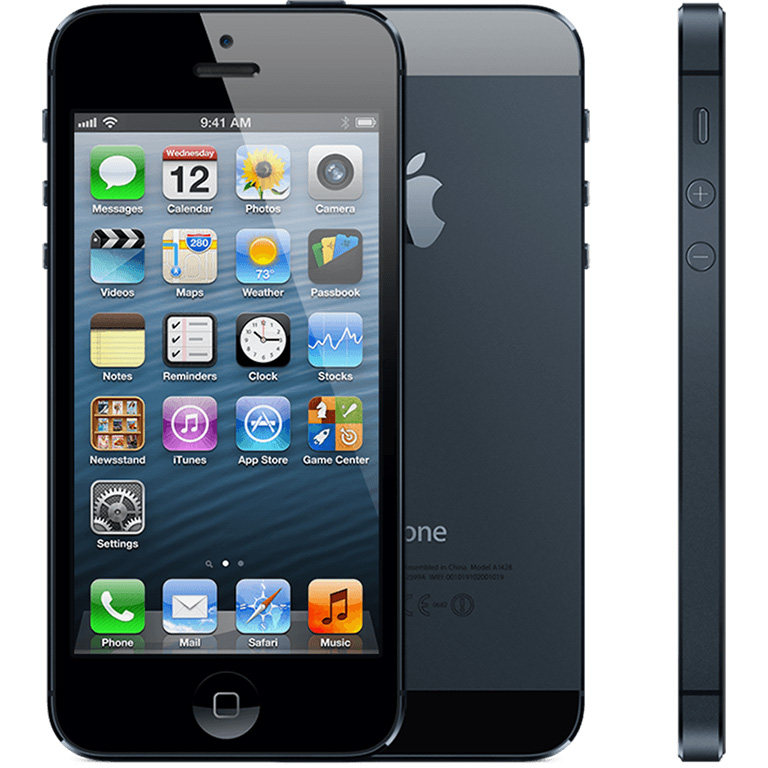
Sporting a sexier look, the iPhone 5 debuted in September 2012 with a bigger 4-inch display, 1136 x 640 resolution, and 326ppi. Looking back, Cook mentioned that “this was the biggest thing to happen to iPhone since the iPhone,” referring to the first-gen model. Taking a closer look at its physique, the iPhone 5 was taller but thinner and lighter compared to the previous iterations. The body got an aluminum chassis treatment so it screamed premium quality when held.
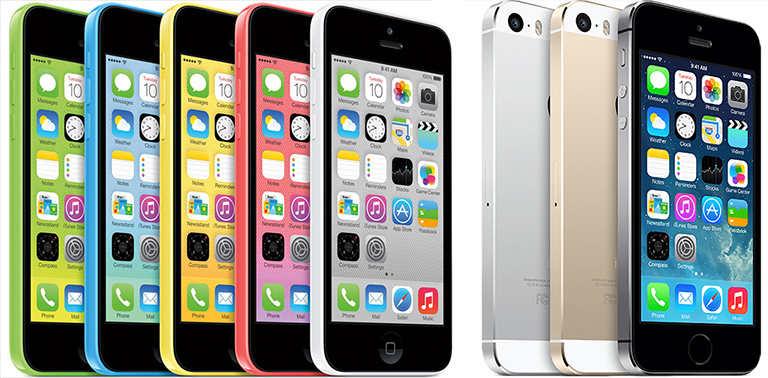
Both the iPhone 5C and iPhone 5S came out at the same time with the former basically replacing the now-discontinued iPhone 5. The 5S, which was really for those looking for an upgrade, sported a speedier 64-bit A7 SoC and a GPU that does twice the workload. Called the M7, this motion processor was embedded at the core and makes it possible for the phone to measure data for the handful of health apps that came with iOS 7. Together with the CoreMotion API, they utilized info from its sensors (accelerometer, gyroscope, and compass) to accurately show how many steps you’ve taken, calories burned, and a lot more.
Additionally, the fingerprint scanner was officially seen here after countless rumors. This Touch ID was layered on top of the physical home button and “reads your fingerprint at an incredibly detailed level.”

Unveiled just last year, the iPhone 6 and its bigger brother 6 Plus didn’t only have better specs this time, but they also got bigger physically. From the 4-inch display of the iPhone 5S, the smaller iPhone 6 was introduced at 4.7 inches, while the 6 Plus had 5.5 inches of screen real estate. CEO Tim Cook claimed that it was the “biggest advancement in the history of iPhone,” as they have additional bells and whistles like NFC for easier payment, Retina Display HD for crisper images, and more energy-efficient internals.
Once again, the curved edges of the iPhone were revived and the company made them thinner than the iPhone 5S. Storage-wise, users could enjoy up to 128GB of space for all their app and media needs.
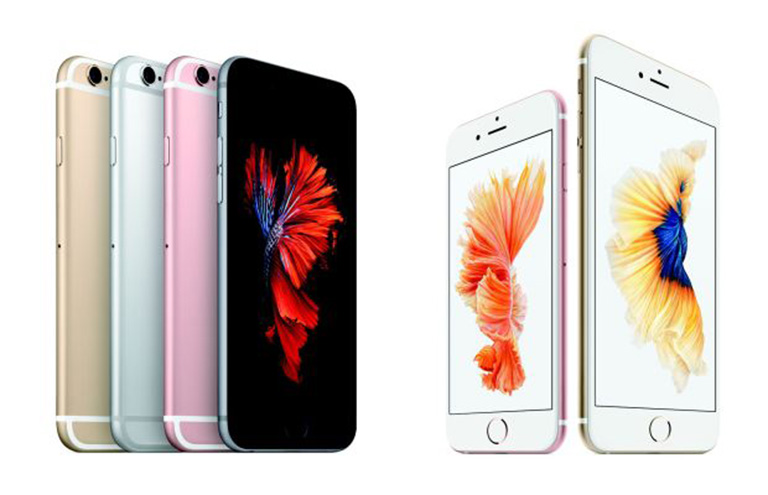
And here we are. The two newest iPhones Apple has released in the market. The iPhone 6S and 6S Plus continued to wow the fans with a handful of improvements during its launch. This includes a faster 64-bit A9 processor, 2GB of RAM, and better imaging capabilities. They also introduced new features for its consumers like the front retina flash, 3D Touch, and Deep Trench Isolation for better autofocus.
Those are just some of what the new handsets bring to the table. Additionally, you can read more about what has improved and what remained the same on the iPhone 6S in our article here.
Apple’s iPhone has come a long way since its first release eight years ago. The company was the one who pushed other manufacturers to step up their games when the first generation was announced, making them great innovators of this digital age. So, if you’d think about it, we kind of owe it to them for setting the standards high right from the get-go which resulted to other brands to catch up and even go further than what this company has set.
The downside, though, is that we see new handset models almost every month promising better specs and better features.

YugaTech.com is the largest and longest-running technology site in the Philippines. Originally established in October 2002, the site was transformed into a full-fledged technology platform in 2005.
How to transfer, withdraw money from PayPal to GCash
Prices of Starlink satellite in the Philippines
Install Google GBox to Huawei smartphones
Pag-IBIG MP2 online application
How to check PhilHealth contributions online
How to find your SIM card serial number
Globe, PLDT, Converge, Sky: Unli fiber internet plans compared
10 biggest games in the Google Play Store
LTO periodic medical exam for 10-year licenses
Netflix codes to unlock hidden TV shows, movies
Apple, Asus, Cherry Mobile, Huawei, LG, Nokia, Oppo, Samsung, Sony, Vivo, Xiaomi, Lenovo, Infinix Mobile, Pocophone, Honor, iPhone, OnePlus, Tecno, Realme, HTC, Gionee, Kata, IQ00, Redmi, Razer, CloudFone, Motorola, Panasonic, TCL, Wiko
Best Android smartphones between PHP 20,000 - 25,000
Smartphones under PHP 10,000 in the Philippines
Smartphones under PHP 12K Philippines
Best smartphones for kids under PHP 7,000
Smartphones under PHP 15,000 in the Philippines
Best Android smartphones between PHP 15,000 - 20,000
Smartphones under PHP 20,000 in the Philippines
Most affordable 5G phones in the Philippines under PHP 20K
5G smartphones in the Philippines under PHP 16K
Smartphone pricelist Philippines 2024
Smartphone pricelist Philippines 2023
Smartphone pricelist Philippines 2022
Smartphone pricelist Philippines 2021
Smartphone pricelist Philippines 2020